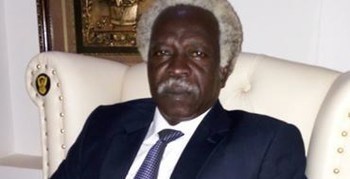An alliance of South Sudanese political parties has welcomed the decision taken by President Salva Kiir returning the country to 10 states plus three administrative areas.
In 2016, the alliance of 13 political parties in Juba filed a law suit seeking the Supreme Court to block President Salva Kiir's order to create more states, but the case was delayed by the court.
The group was represented by Advocate Agok Makur, who is now a senior member of the opposition Sudan People’s Liberation Movement-In-Opposition (SPLM-IO).
Speaking to Radio Tamazuj this afternoon, Kornelio Kon Ngu, the leader of the national alliance of political parties, described the compromise made by President Salva Kiir as a “starting point” for peace and unity in the country.
“We are happy with the decision and we congratulate the president for returning the country to 10 states plus three administrative areas. The move will definitely reunite the people of South Sudan,” he said.
Kornelio noted that his alliance had been calling for compromises to resolve the issue of the number of states by relinquishing the controversial 32 states.
“The issue of government employees will be resolved because those civil servants were recruited based on the former 10 states, so people shouldn’t worry about it,” he said.
The politician has urged the people of South Sudan to embrace unity for prosperity and development warning that disunity can paralyze and endanger the nation.
“We are very happy because the president has decided to prioritize our unity by returning the country to 10 states. We have failed to deliver services by creating more states and our unity was in jeopardy because of the 32 states,” he said.
Kornelio called on the people of South Sudan to support the peace process in the country.
President Salva Kiir said he decided to return the country to 10 states and their previous counties; plus Abyei, Ruweng and Pibor Administrative Areas.
This came during a rare meeting of the country’s top leadership in Juba this morning, as talks with the opposition on the contentious issue of the number of states hit a deadlock.




